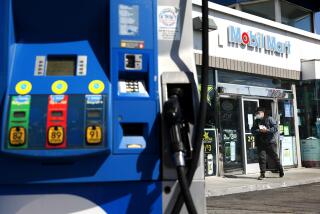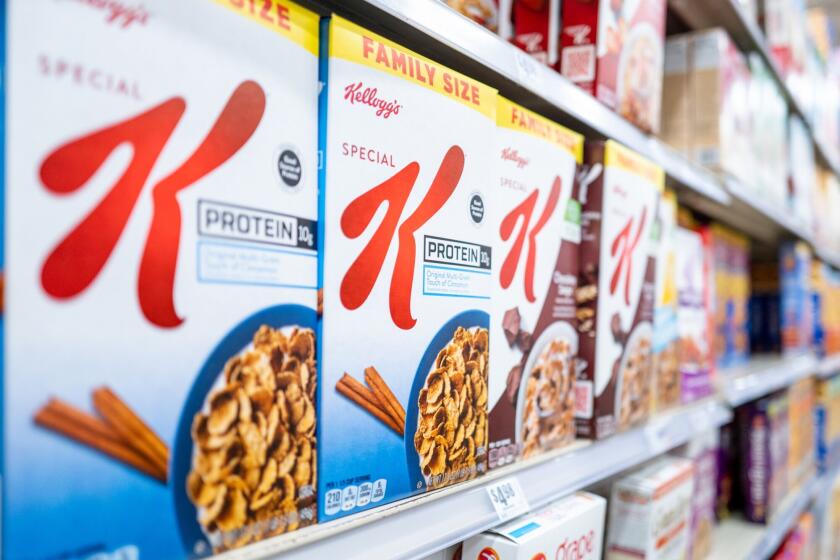Exxon’s reach is felt at its stations
- Share via
WASHINGTON — Every time Sohaila Rezazadeh rings up a sale at her Exxon station in the Oakton section of Fairfax, Va., her cash register sends the information to Exxon Mobil’s central computers. If she raises the price of gasoline a couple of pennies, chances are that Exxon will raise the wholesale price she pays by the same amount.
Through a password-protected Web portal, Exxon notifies Rezazadeh of wholesale price changes daily. That way the oil giant, which is earning about $3.3 billion a month, fine-tunes the pump prices at the franchise Rezazadeh has owned for 12 years.
Now, however, Rezazadeh says she cannot stay in business. Credit card fees are eating her profit margins. Exxon, which owns the station land, has handed Rezazadeh a new lease raising her rent about 30% over the next three years. She stuck a copy on the window of her station to show customers who are angry about soaring pump prices. Rezazadeh has told Exxon that she cannot make money with the rent that high. Her territory manager’s reply, she said, was simple: When you go, leave us the keys.
Rezazadeh, who fled to the United States from Iran in 1979, is part of the long chain that links motorists with the big oil companies. Major integrated U.S. oil companies, which produce crude oil, own refineries and sell gasoline, have been reaping billions of dollars in profit over the last two years, but they are still working to extract every penny they can from the marketing end of the business.
Exxon Mobil doesn’t break out its earnings from marketing alone, but its 2007 profits in worldwide refining and marketing -- known as the downstream part of the oil business -- reached $9.6 billion, 43% of that coming from the United States.
Although Exxon owns and operates few stations anymore -- less than 10% of the 12,000 Exxon outlets in the United States -- it uses franchise agreements to maintain tight control over stations that bear its brand. The company dictates everything from the number of pumps to hygiene practices to the placement of food items on shelves.
Exxon says that it does all this to maintain uniform quality, while taking into account its dealers’ needs.
“We recognize . . . that we are in a difficult time with the run-up in crude oil prices,” said Ben Soraci, director of U.S. retail sales for Exxon. “Retailers are under a lot of pressure, and they are on the front lines every day with the motorist, who is also feeling a lot of pressure.”
More to Read
Inside the business of entertainment
The Wide Shot brings you news, analysis and insights on everything from streaming wars to production — and what it all means for the future.
You may occasionally receive promotional content from the Los Angeles Times.










